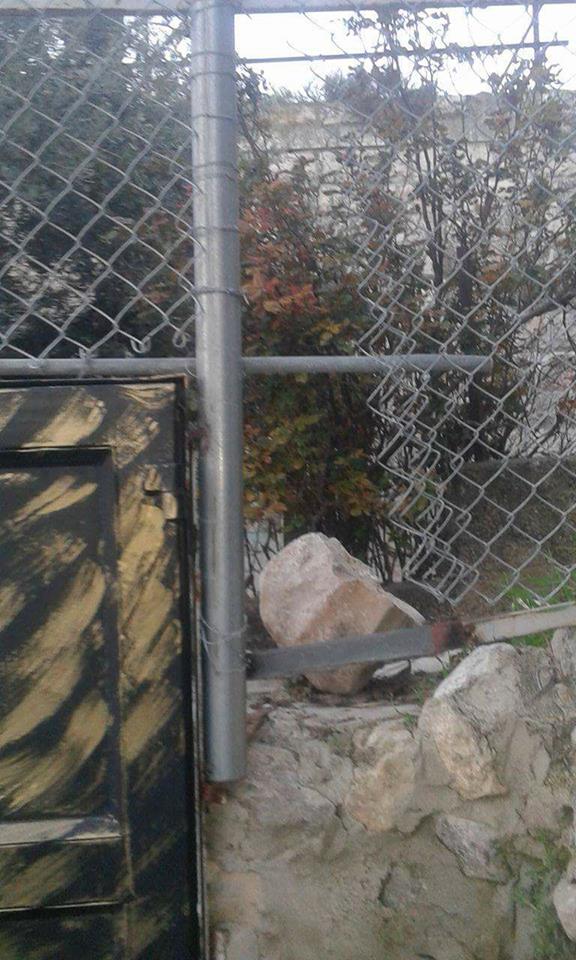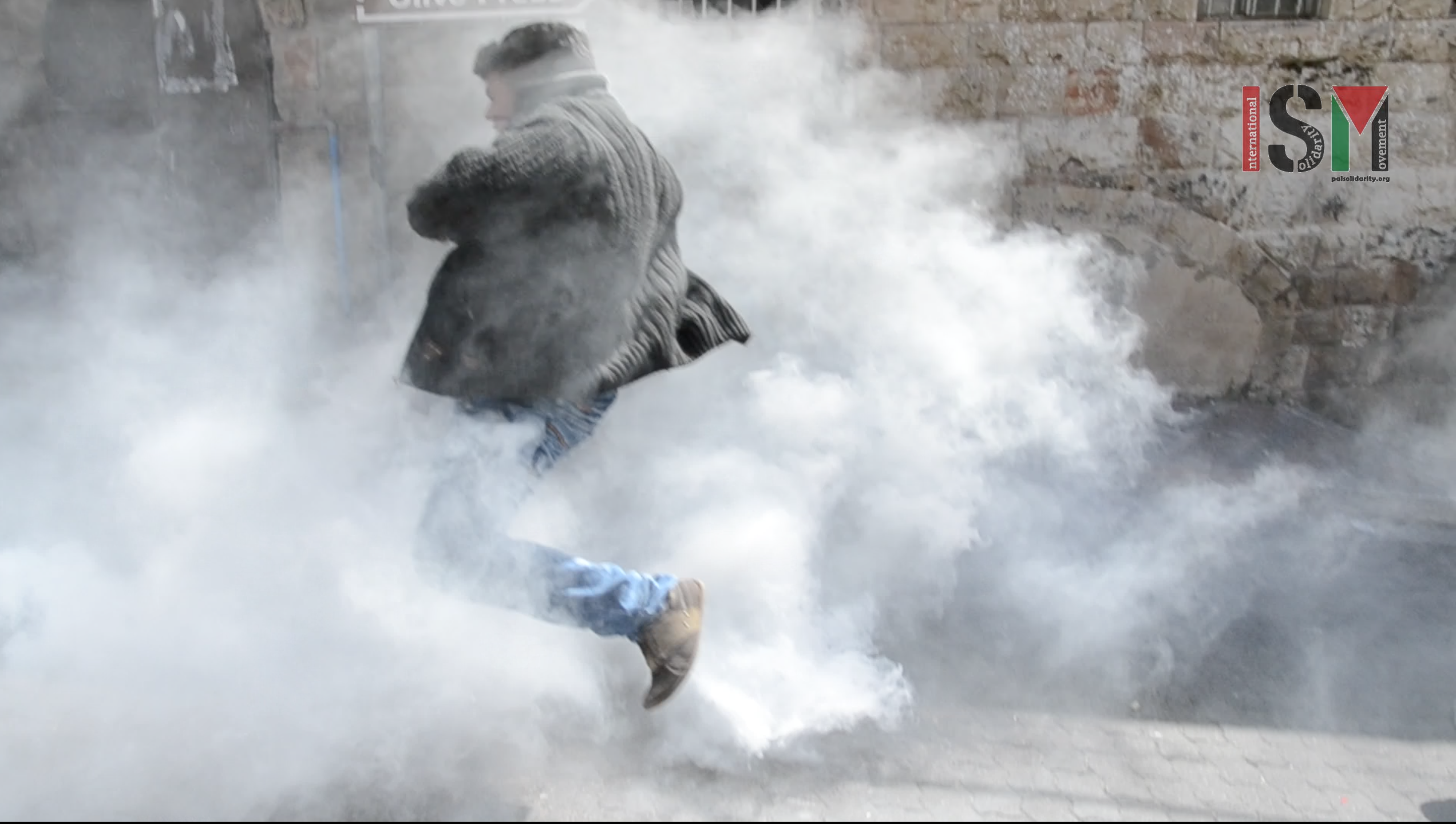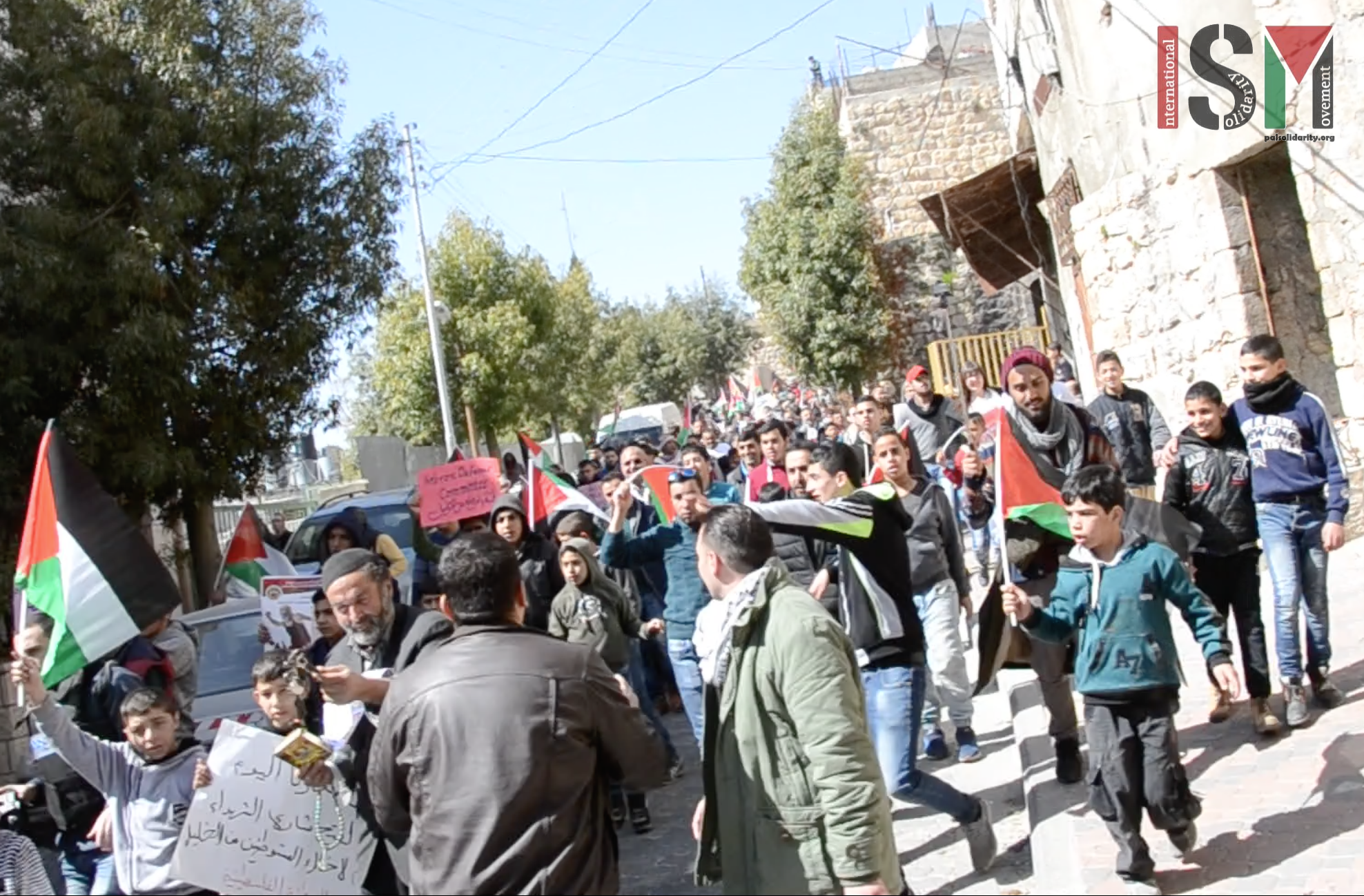Category: Hebron
-
Illegal settlers break into kindergarten, damage property
7th March 2017 | International Solidarity Movement, al-Khalil team | Hebron, occupied Palestine Colonial settlers from the illegal settlements in occupied al-Khalil (Hebron) have repeatedly invaded and damaged a Palestinian kindergarten located on Shuhada Street over the last two days. On Saturday night, the colonial settlers entered the Shuhada Street kindergarten, stealing two Palestinian flags…
-
Hebron’s eighth annual demonstration to open Shuhada Street: in pictures
2nd March 2017 | International Solidarity Movement, al-Khalil team | Hebron, occupied Palestine The eighth annual demonstration against the closure of the Tel Rumeida and Shuhada Street districts of Hebron was dispersed by Israeli violence within five minutes of setting off this year. Nearly a thousand attended from all over Palestine, and included Israeli and…
-
Israeli army attacks peaceful demonstration in Hebron and injures protesters : eye-witness accounts
24th February 2017 | International Solidarity Movement, al-Khalil team | Hebron, occupied Palestine On 24th February several hundred people joined together for a demonstration in al-Khalil (Hebron) in occupied Palestine. Palestinians, Israelis and international activists protested together against the occupation of Shuhada Street and Tel Rumeida in the heart of the city, closed by the military…



